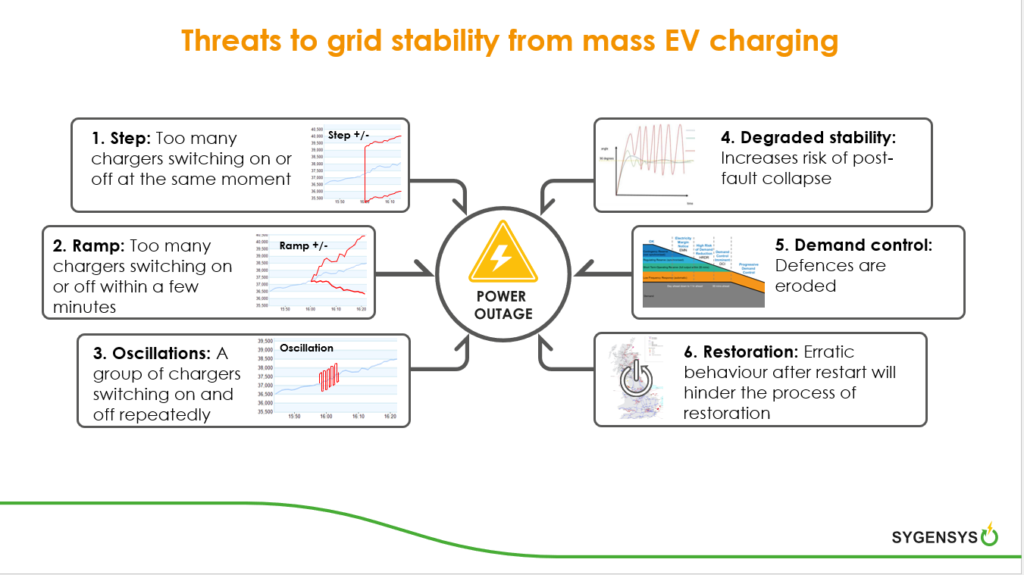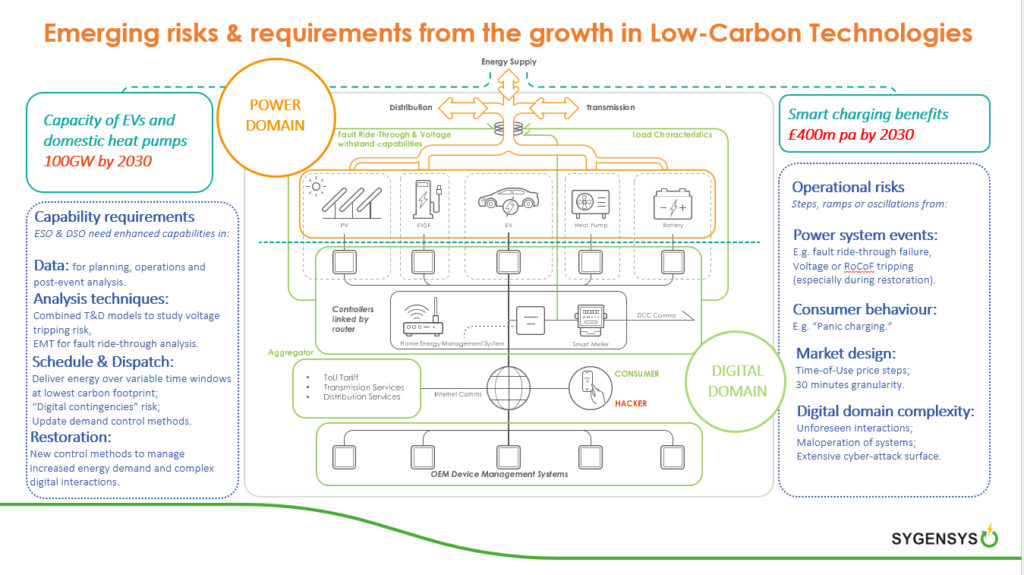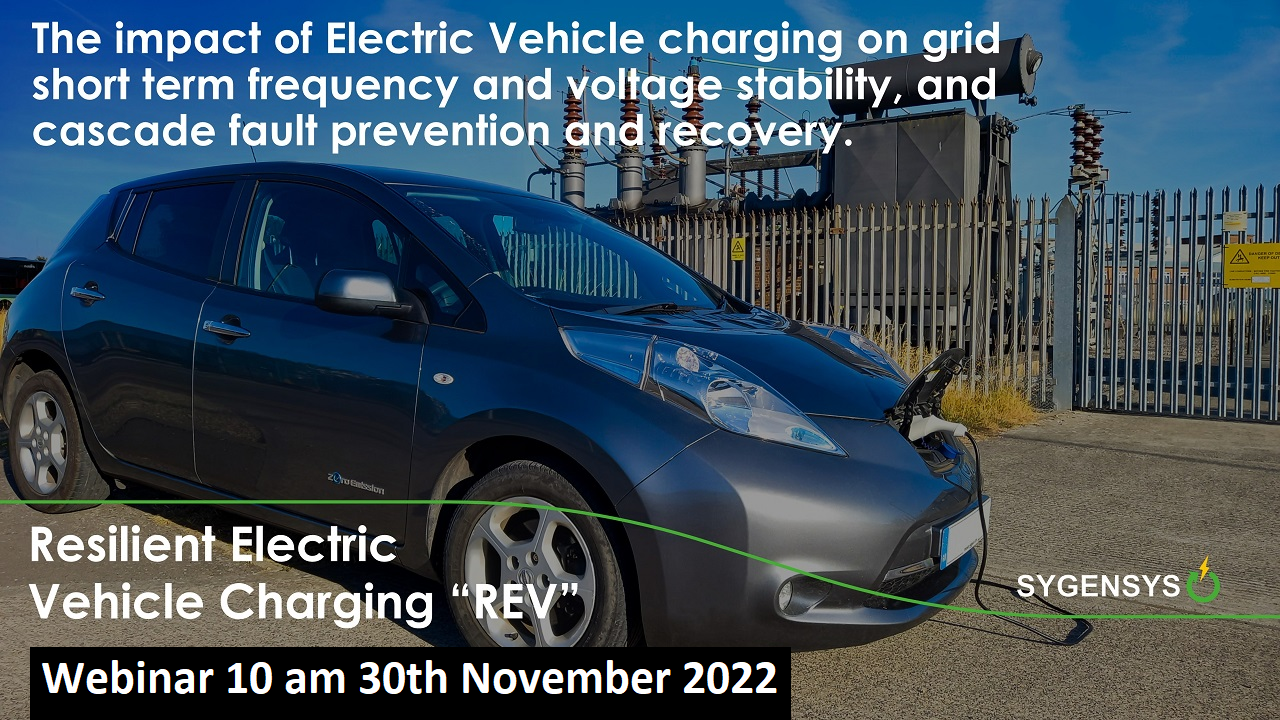There is more to EV charging than providing the kWh. What happens in the first few seconds after a fault? Be that power or communication or control systems
EV charging is a major new load on the electricity grid. It will have a significant impact on grid short term frequency and voltage stability, and cascade fault prevention and recovery.
Smart charging, controlled by software systems to charge off-peak, will behave in a significantly different way to traditional system demand, especially during grid transient events or post power cut. This introduces system risks that have not been seen before, which will require mitigation actions.

Get it right and smart charging, combined with V2G has the potential to enhance system security and save hundreds of millions of pounds per year.
The key findings of the project will be presented in webinar at 10am on 30th November 2022 (Note revised date) which presents the conclusions from Project Resilient Electric Vehicle Charging (REV) which Sygensys has undertaken for National Grid ESO.
The final report is provided in the projects section of this website.




